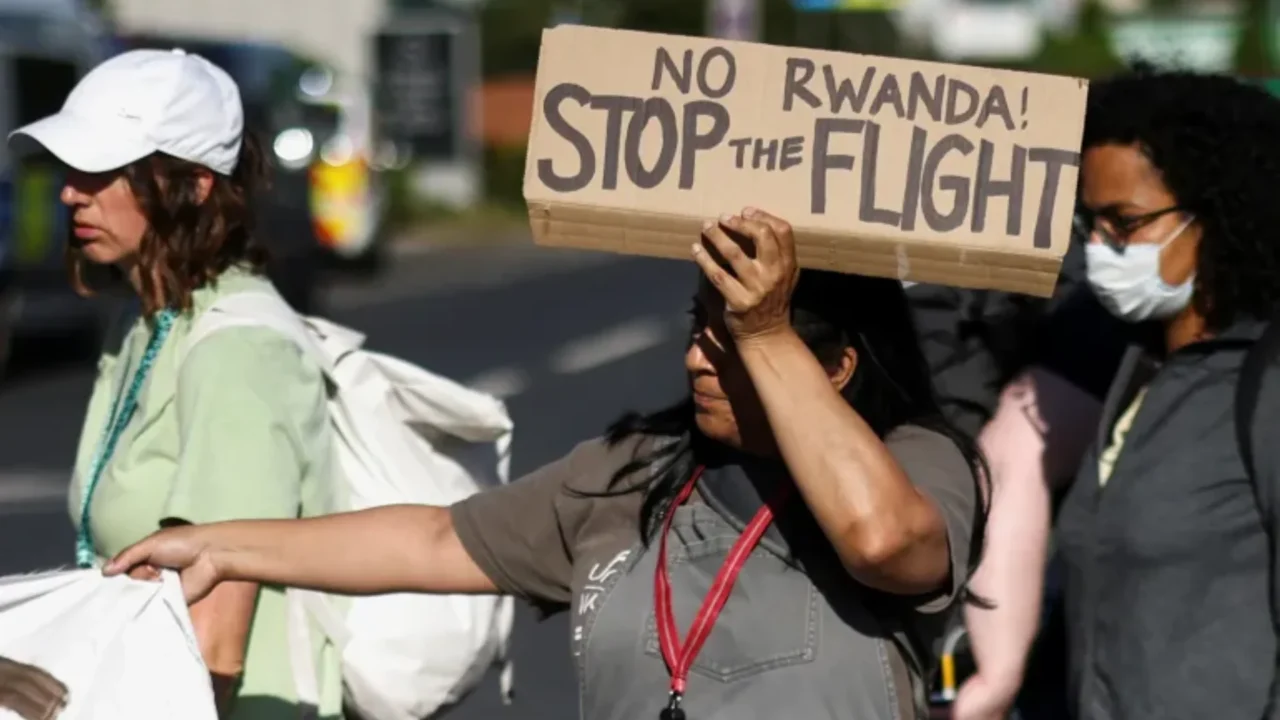By 2025, the United States government led by President Donald Trump escalated the process of using third-country solutions to deport the migrants proceeding not only to their home nations but in addition to other states in which they will have no previous affiliation. The governmental tradition has been once again questioned following a landmark ruling by the U.S. Supreme Court in June 2025 that paved the way to fast-track removals free of court checks.
The ruling struck down a lower court’s injunction that had granted migrants at least 15 days to challenge their deportation destinations. This ruling returned the Department of Homeland Security (DHS) to the deportation of migrants to such countries as South Sudan, Libya, Senegal, Liberia, and Guinea-Bissau, which have underdeveloped infrastructures and almost unstable political situations. Whether such practices are legal, and whether they are ethically right, has become a cause of hot debate.
Legal And Human Rights Concerns
Supreme Court Ruling And Procedural Erosion
The short, unsigned, and categorical decision of the Supreme Court on June 23, 2025, dismissed a lawsuit on the U.S census. It eliminated the procedural hurdle the previous immigration officials had to meet and postpone the deportations of third countries effectively enabling quick removal with minimal or no chance of review alike.
In a 19-page dissent, Justice Sonia Sotomayor, vehemently attacked the majority ruling with the statement that, it
“Exposes thousands to the possibility of torture or death.”
She said the decision violates the American constitutional norms and dissolves the international obligations. She is echoing the concerns of many jurists and human rights experts who believe the case to be the beginning of an important shift in immigration law that moves faster than it looks.
Dangers In Receiving Countries
The majority of the receiving countries are incapable of giving the deportees protection either on a legal basis or on a humanitarian basis. Cited in recent days by DHS removals, South Sudan, is still married with internal trouble, food insecurity and political wrangles. The deportees are landing in a place where there is no support against any chances of violence or extortion as well as forceful recruitment into militias.
In the same spirit, the United Nations has been mentioning Libya as one of the hotspots of human trafficking and abuse especially among migrants. The use of people in such environments poses serious questions on the compliance of the U.S. with the principle non-refoulement that prevents states in sending back people to a nation where they are at risk of imminent persecution or torture.
Ethical Dimensions Of Burden-Sharing
Undermining Non-Refoulement And Refugee Protection
Deportation to any country where they may end up being harmed is illegal according to the international law, most notably the 1951 Refugee Convention and the Convention Against Torture. However, most deportees never get a chance to prove that such deletion contradicts such commitments under international law because of lack of screening and scanty legal counsel.
The U.S. policy effectively bypasses international protections by declaring countries “safe” without robust, independent assessments. In practice, the designation of a country as “safe” has become a political decision rather than a factual or humanitarian one.
The Question Of Third-Country Consent
Another contentious issue is the consent and capacity of receiving nations. In the open letters, Guinea-Bissau has rejected being used in the United States as the destination country of deportation of non-nationals claiming such refugees cannot be controlled by the sovereign state after they have been deported, and such people are determined to prove their sovereignty. The contracts to obtain these agreements are thought by some observers to be secured by financial incentives, diplomatic arm-twisting, or, possibly, by military cooperation deals, all of which raise the ethical issues of coercion and fairness.
Such deals are not transparent, which erodes the trust of the people and puts migrants and receiving states in very endangered situations.
The Human Impact Of Deportation Deals
Migrants affected by these deportations include asylum seekers, victims of Migrants to whom those deportations apply are asylum seekers, trafficking victims, and people who have been living several years in the U.S. Most of them are deported without any warning, are torn apart with their families, or without any property and legal paperwork that proves who they are. A linguistic gap and the lack of a lawyer make them even more vulnerable.
Accounts have emerged of deportees being dropped in unfamiliar cities, denied access to shelter, or detained upon arrival. In several cases, migrants have attempted to re-enter the U.S. through more dangerous routes, risking their lives to escape the insecurity of their new environments.
The Political And Diplomatic Framework
Reshaping Immigration Enforcement
The Trump administration’s immigration strategy in 2025 remains anchored in deterrence and enforcement. Statements from Secretary of State Marco Rubio indicate that deporting individuals to remote third countries is designed to discourage unauthorized entry by making the consequences more severe and uncertain.
This rationale aligns with the administration’s broader messaging: immigration enforcement is a matter of national security, not humanitarian policy. While this position garners support from certain political constituencies, it also invites condemnation from legal and human rights groups, both domestically and abroad.
Diplomacy With African Nations
In July 2025 a summit between African leaders held at the White House discussed trade and development cooperation and signing of deportation agreements. Some of the African leaders did not see anything sustainable in taking deportees considering that their citizens were grappling with unemployment and the lack of good public services.
There are instances where governments have grimly been coerced under the pressure of economics to sign the agreement, though in others the opposing view has come out very forcefully. The foreign ministry of Senegal posed a statement pleading with the U.S. to revisit the use of third country removals, citing instability in bilateral relationships and insurrection in the region were the implications of these policies.
Voices Of Criticism And Resistance
During the interview conducted by BBC News, a renowned Kenyan journalist and international correspondent Larry Madowo talked about the deportation policy. He made special note that such arrangements can be so harmful to local stability as well as diplomatic goodwill, not to mention individual rights. He added: The policy throws basic considerations of fairness, sovereignty and how vulnerable people should be treated. It poses a threat of making Africa a grave of immigrants that the U.S. dislikes.
You may be deported from America and sent to Rwanda, even if you're not from there. "Illegal aliens" could be heading to Africa soon.
— Larry Madowo (@LarryMadowo) May 5, 2025
President Kagame's government is in talks with the Trump administration to accept the "most despicable human beings" as a favor to the US pic.twitter.com/MKkiRa82FT
The same has been said by activists and experts in the field of law who believe that the present-day policy towards deportation not only undermines ethical conventions but also opposes traditional international rules. Lawsuits have been filed by the American Civil Liberties Union and Human Rights Watch to end the deprivation of due process and evictions to places of clear risk.
Implications For Global Migration Policy
The U.S. is by no means the only country trying to offload migration in other countries. The European Union’s deals with Tunisia and Libya, and the UK’s Rwanda deportation plan, are parallel examples of this trend. The critics say that these are short term measures that push the responsibility shift to the next location without solving the real problems that led to displacement.
This strategy damages international solidarity and destroys the asylum law framework developed as soon as World War II. The novel migration control is increasingly externalized by powerful states, and the greater the levels of exteriorization, the less probable it is to achieve the uniform high-quality and humane norms in all parts of the world.
Navigating The Ethics Of Enforcement And Responsibility
Immigration is a right of governments to regulate borders. However, that right should be fulfilled with respect towards individual rights, international law, and ethical ruling. Sentencing human beings to deportation to nations they have no relation to and have little legal support and hazardous environments is an ethical risk to human peace.
In addition, these policies strain international relations and weaken American leadership on human rights. When deportation and abandonment become synonymous, then it points to a regress of implications as far as humanitarian values that previously influenced the U.S. foreign policy are concerned.
The logic of third-country deportation is alarming: how many of those rights can be sacrificed to maintain the security of whom? The implications of these transfers are not abstract to those who fall in the middle of them and they are irreversible.
This policy does not only question the logic and morals of courts, lawmakers and civil society as it plays out. The ability of countries to develop migration systems that do not undermine the principles of sovereignty and humanity will determine the future of global mobility, which will have serious consequences and value implications on many millions of humans who want to find a safe removable habitat on earth.





